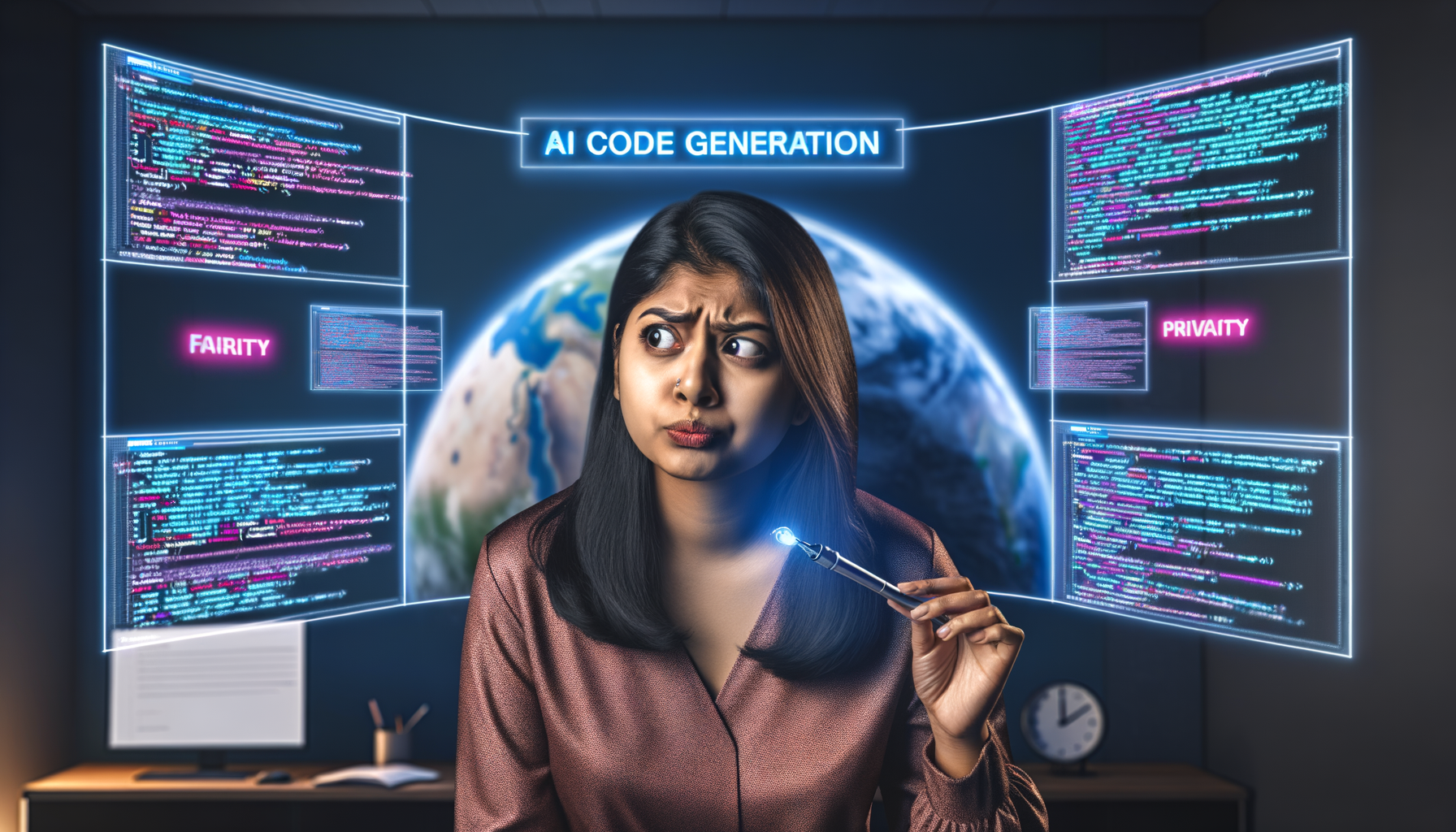
AI Code Generation Ethics: Navigating the Moral Maze of Automated Programming in 2024
Wow, can you believe it? AI is now writing code! As we dive into 2024, the ethical implications of AI code generation are more pressing than ever. Did you know that 40% of developers now use AI-powered coding assistants? It’s a brave new world, and we need to tackle the moral challenges head-on!
The Rise of AI Code Generation
AI code generation has been making waves in the tech world lately. But what exactly is it? Well, imagine having a digital assistant that can write code for you based on simple instructions. That’s essentially what AI code generation does.
Currently, we’re seeing a surge in popularity of tools like GitHub Copilot and OpenAI’s GPT-3. These AI coding buddies can help developers write code faster and more efficiently. It’s like having a super-smart coding partner who never gets tired!
But here’s the kicker: this technology is seriously shaking up the software development industry. Some developers are ecstatic about the boost in productivity, while others are a bit wary. It’s definitely a game-changer, no matter how you look at it.
Ethical Concerns in AI-Generated Code
Now, before we get too excited about our new AI coding pals, we need to talk about some of the ethical concerns. First up: intellectual property and copyright issues. Who owns the code that an AI generates? It’s not as straightforward as you might think.
Then there’s the issue of bias and fairness. AI systems learn from existing code, which means they might inadvertently perpetuate biases present in that code. It’s like teaching a new programmer by only showing them one style of coding – not ideal, right?
And let’s not forget about job displacement. Some human programmers are worried that AI might make their skills obsolete. But it’s not all doom and gloom – the role of human programmers is changing, not disappearing. Think of it as evolving rather than becoming extinct.
Ensuring Responsible AI Code Development
So, how do we make sure we’re using AI code generation responsibly? Transparency is key. We need to understand how these AI systems make decisions. It’s like having a clear recipe for your grandma’s secret sauce – you want to know what goes into it.
We also need to implement ethical guidelines. Just like we have coding standards, we need standards for AI code generation. It’s about setting clear boundaries and expectations.
And of course, we can’t forget about human oversight. AI is smart, but it’s not infallible. We need human programmers to review and quality control the AI-generated code. It’s a bit like having a senior developer review a junior’s work – necessary for maintaining high standards.
Mitigating Bias in AI-Generated Code
Speaking of bias, let’s dive deeper into how we can address this issue. First, we need to get better at identifying algorithmic bias. It’s like being a detective, always on the lookout for sneaky biases that might creep into our code.
One way to combat bias is by using diverse training data. If we feed our AI a variety of coding styles and approaches from different backgrounds, it’s more likely to generate inclusive and unbiased code.
Regular audits are also crucial. We need to keep checking our AI systems to make sure they’re not developing any bad habits. Think of it as a health check-up for your AI – regular and necessary.
The Future of AI Code Generation
Now, let’s gaze into our crystal ball and think about the future of AI code generation. The potential advancements are mind-boggling. We might see AI that can design entire systems or debug complex code in seconds.
But with great power comes great responsibility. As we push the boundaries of what’s possible, we need to make sure we’re doing it ethically and responsibly. It’s like developing a new superpower – exciting, but potentially dangerous if misused.
Finally, we need to think about how to prepare our workforce for this AI-augmented future. It’s not about competing with AI, but learning to work alongside it. We need to focus on developing skills that complement AI, like creative problem-solving and system design. It’s an exciting time to be in tech, folks!
Conclusion
As we navigate the ethical landscape of AI code generation, it’s crucial to strike a balance between innovation and responsibility. By addressing these challenges head-on, we can harness the power of AI to create better, more efficient software while upholding our moral values. The future of coding is here – let’s shape it responsibly!